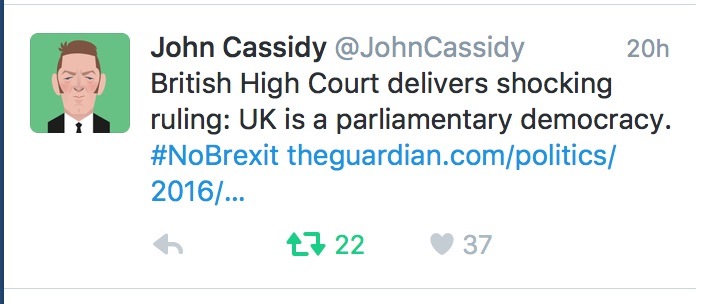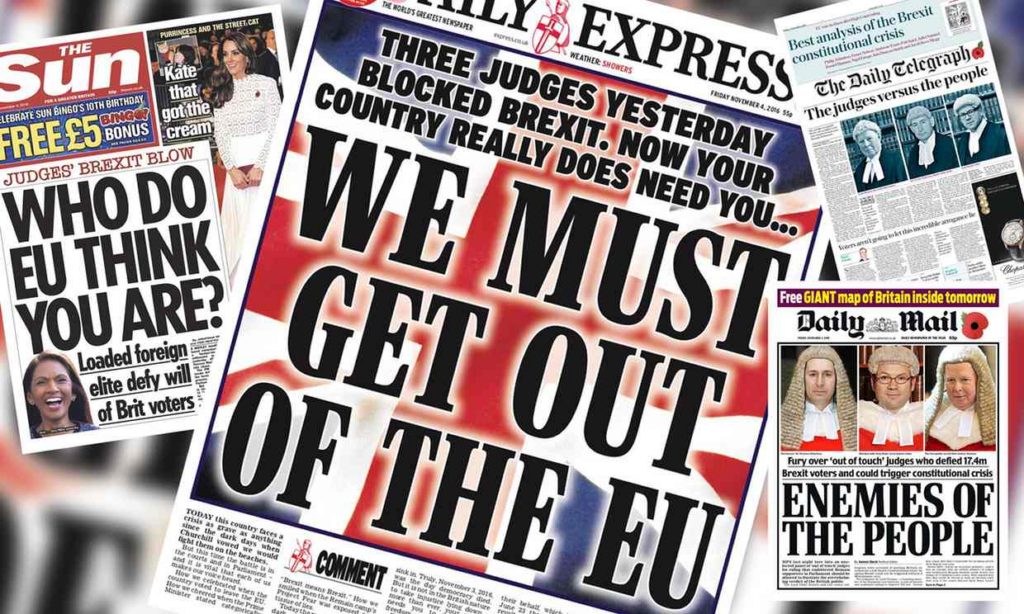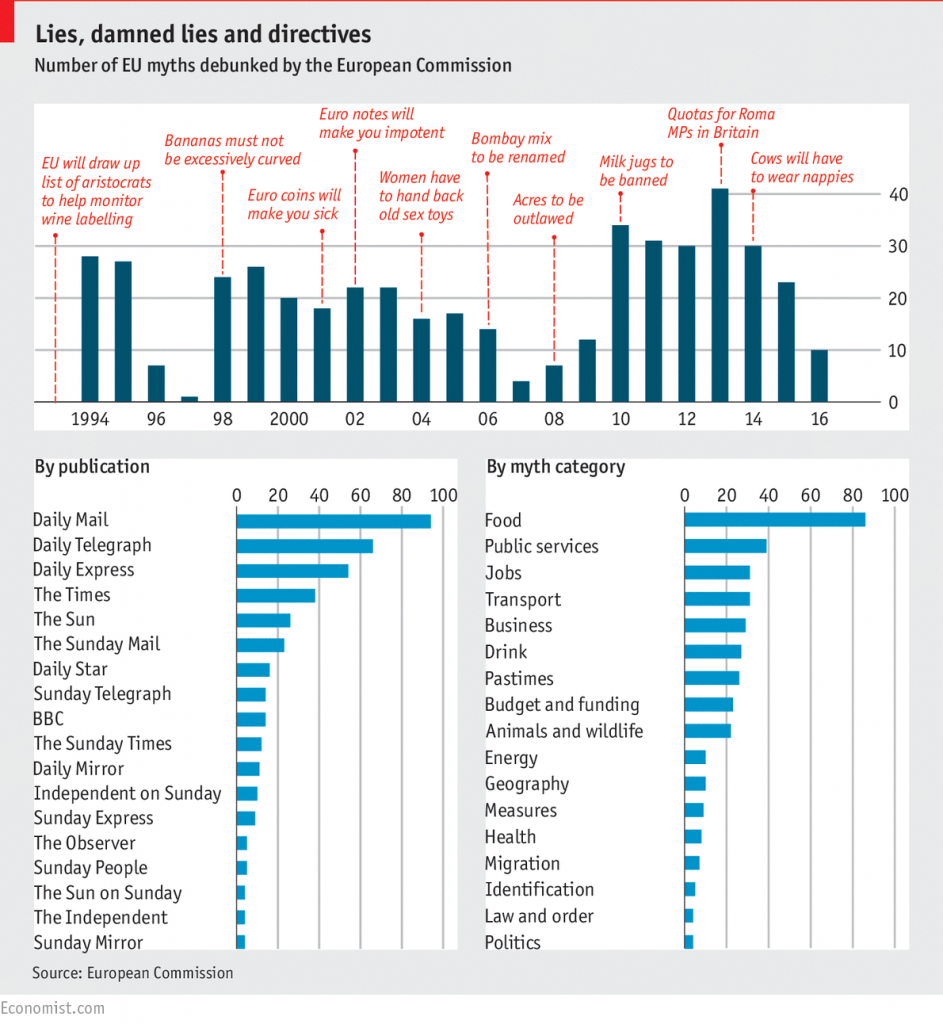The rule of law…
… is one of the basic criteria for a functioning democracy. The UK is (still) a democracy in that sense. But it looks as though the creeps who run the country’s tabloid newspapers don’t understand that.
Which is why this statement from the Chair of the Bar Council is welcome:
“The judiciary of England & Wales is the envy of the world because it is independent of Government or any other influence. When we speak to lawyers in other jurisdictions, it is our judiciary that they particularly praise for its professionalism and independence. “Publicly criticising individual members of the judiciary over a particular judgement or suggesting that they are motivated by their individual views, political or otherwise, is wrong, and serves only to undermine their vital role in the administration of justice. It also does no favours to our global reputation.
“None of the parties suggested that the Court did not have jurisdiction to decide the point at issue. They are simply doing their job – impartially ruling on a dispute between parties, one of whom happens to be the Government in this instance. The right to appeal is there to challenge the Court’s decision if a party feels they have grounds to do so. Whilst acknowledging that this question is one of potentially significant constitutional importance, the independent role of the Court should be respected, particularly by those who disagree with the outcome.”
Foreign readers who are unfamiliar with Britain’s toxic tabloid culture might find Andy Beckett’s essay useful.
SEE ALSO Charlie Falconer’s excellent piece
Facebook: still growing
From today’s New York Times:
The social network on Wednesday reached the latest milestones in its quest to dominate the world, topping 1.79 billion monthly visitors as of the end of September, up 16 percent from a year ago. Facebook also added a record number of new daily users and said for the first time that more than one billion people regularly used its network exclusively on their mobile device every month.
And those numbers do not even include Facebook’s other properties, such as the photo-sharing service Instagram and the messaging service WhatsApp.
Facebook’s user growth defies the usual trajectories for social media companies, which often start strong out of the gate and then sharply slow down. Twitter, which added four million new visitors last quarter, now serves a user base roughly one-sixth the size of Facebook’s. Snapchat, while popular among young users, has about 150 million daily users, about half as many as Twitter…
Impact of autonomous vehicles on (mostly male) employment
From a Guardian column by Paul Mason:
these battles between regulators and the rent-seeking monopolists who have hijacked the sharing economy are, in the long term, irrelevant. The attempt to drive down cab drivers’ wages and reduce their employment rights to zero are, in their own way, a last gasp of the 20th-century economic thinking.
Because soon there won’t need to be drivers at all. Given that there are 400,000 HGV drivers in the UK, that at least a quarter of Britain’s 2.5 million van drivers are couriers, and that there are 297,000 licensed taxi drivers – that is a big dent in male employment.
The most important question facing us is not whether Uber drivers should have employment rights (they should), but what to do in a world where automation begins to eradicate work. If we accept – as Oxford researchers Carl Frey and Michael Osborne stated in 2013 – that 47% of jobs are susceptible to automation, the most obvious problem is: how are people going to live?
The road from serfdom
From The Economist:
AS MORE CVs glitter with university degrees and straight A-grades, companies have devised a new tiebreaker for admission to the best jobs: the internship. Careers in finance, the media, politics and other popular fields now often begin with a temporary stint lasting from a few weeks to upwards of a year. The government reckons that at any time up to 70,000 interns are toiling in Britain. Yet about a third of them are unpaid. This gives rich, London-based candidates an edge.
There are growing attempts to level the playing field by making companies pay up. On November 4th Alec Shelbrooke, a Conservative MP, is due to present a bill to grant all interns the minimum wage, as long as they are above compulsory school age and their internship is not part of a degree course. The spread of unpaid internships means that bright graduates are being leapfrogged in the labour market by richer rivals who, at university, “pissed about a bit, got a 2:2, but got the job because they had money put behind them,” he says.
Private members’ bills such as Mr Shelbrooke’s tend to fizzle out. But Damian Hinds, the employment minister, let it be known on October 30th that the government, too, was “looking at” the question of unpaid internships, which he linked to social mobility, the subject Theresa May has put at the centre of her domestic agenda…
Quote of the Day
“For the waking there is one world, and it is common — but sleepers turn aside, each into a world of his own”.
Heraclitus
Always comes to mind when I claim that we may be sleepwalking into a networked nightmare.
Stumbling along…
We’ve been in Berlin for a few days. Walking along a residential street in Prenzlauer Berg I came on these brass squares outside the door of an apartment block and suddenly realised what they were: Stolperstine, literally “stumbling stones”, memorials to people, mainly Jews, who once lived in that building and who were deported and murdered by the Nazis. These three commemorate the Holzmann family — father Fritz, mother Dora and son Gerhard — who were all deported on the same day, 29 October, 1941. Father and son went to a forced labour camp and were murdered within a month of one another in 1943. Dora was murdered in another camp in May 1942. According to Wikipedia, over 50,000 stolpersteine have been laid in 18 European countries, making the stolperstein project the world’s largest decentralised memorial.
Why the Web is making high-quality journalism unsustainable
From Frederic Filloux:
Today, the economic value of a journalism item stems from its popularity, i.e. the number of clicks (or views) it generates. A well-crafted listicle put together by a clever Millennial will generate more revenue that any public-interest piece, this in total disregard for who actually reads it, for how long, etc. That’s the absurdity of today’s system.
Yep. Insightful piece, well worth reading in full.
Apple mania
This morning’s Observer column:
It’s that time of year again. Apple has released its results for the fiscal quarter ended 24 September 2016 and we are immediately plunged into “Has Apple peaked?” speculation. How come? Well, the company posted quarterly revenue of $46.9bn and net income of $9bn. Not bad, eh? Ah, yes, but not if you’re a Wall Street analyst, because these numbers compare to revenue of $51.5bn and net income of $11.1bn in the same quarter the year before. And – shock, horror! – the company’s gross margin was only 38% compared to 39.9% a year ago. The numbers are down, in other words.
Cue fevered speculation about the fate of the company. The numbers, burbled one analyst, show “the danger of being a one-trick pony when everyone already owns a pony. The company’s reliance on the smartphone, which is now a mature and saturated market in the developed world, is starting to create a growth problem for Apple. Breaking through will be a challenge, reminding investors Apple’s fundamentals and stock price have peaked.”
Pause for a reality check: Apple has cash reserves of $237.6bn, up $32bn from last year. At $622bn (at 26 October 2016), it is the most valuable company in the world…




